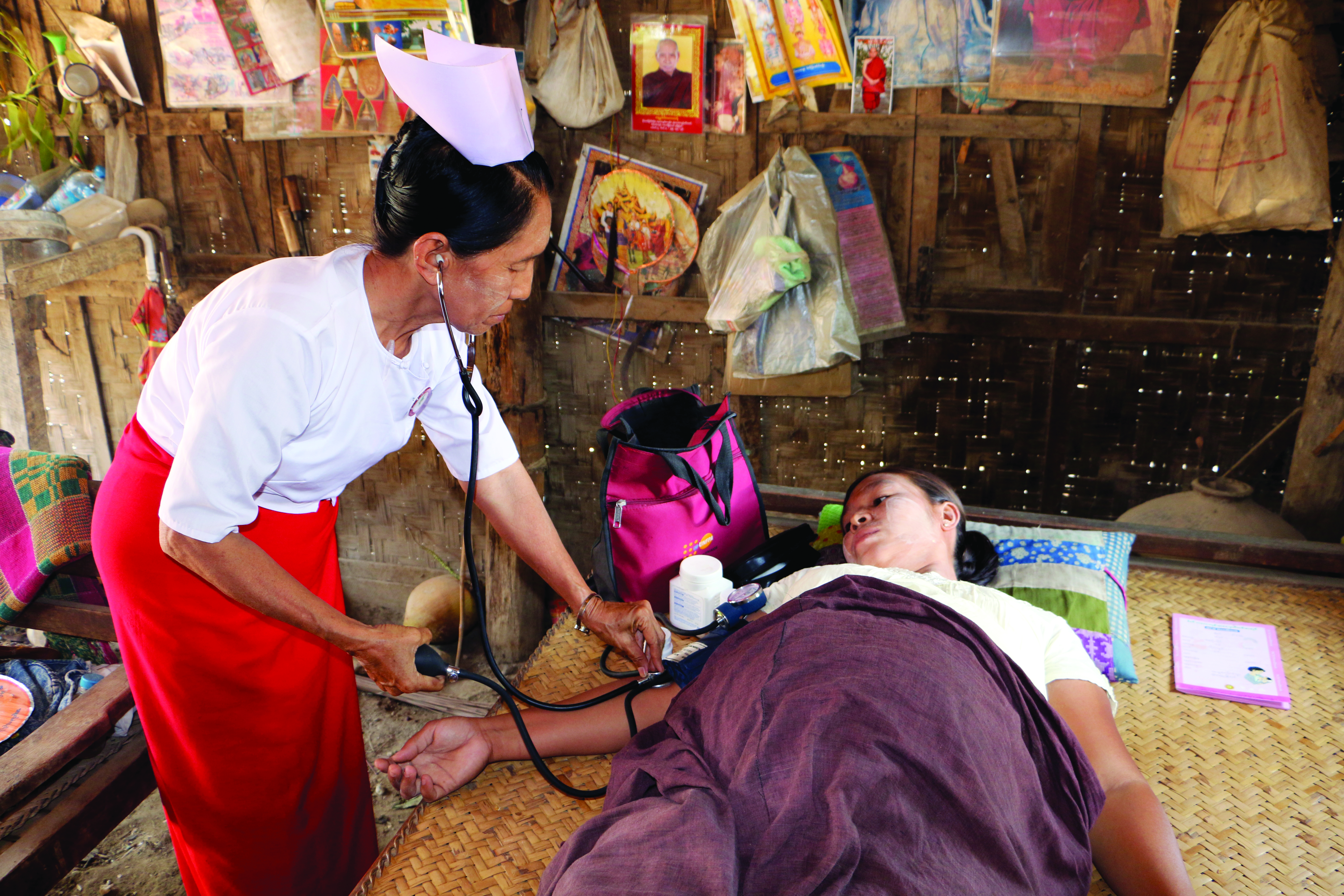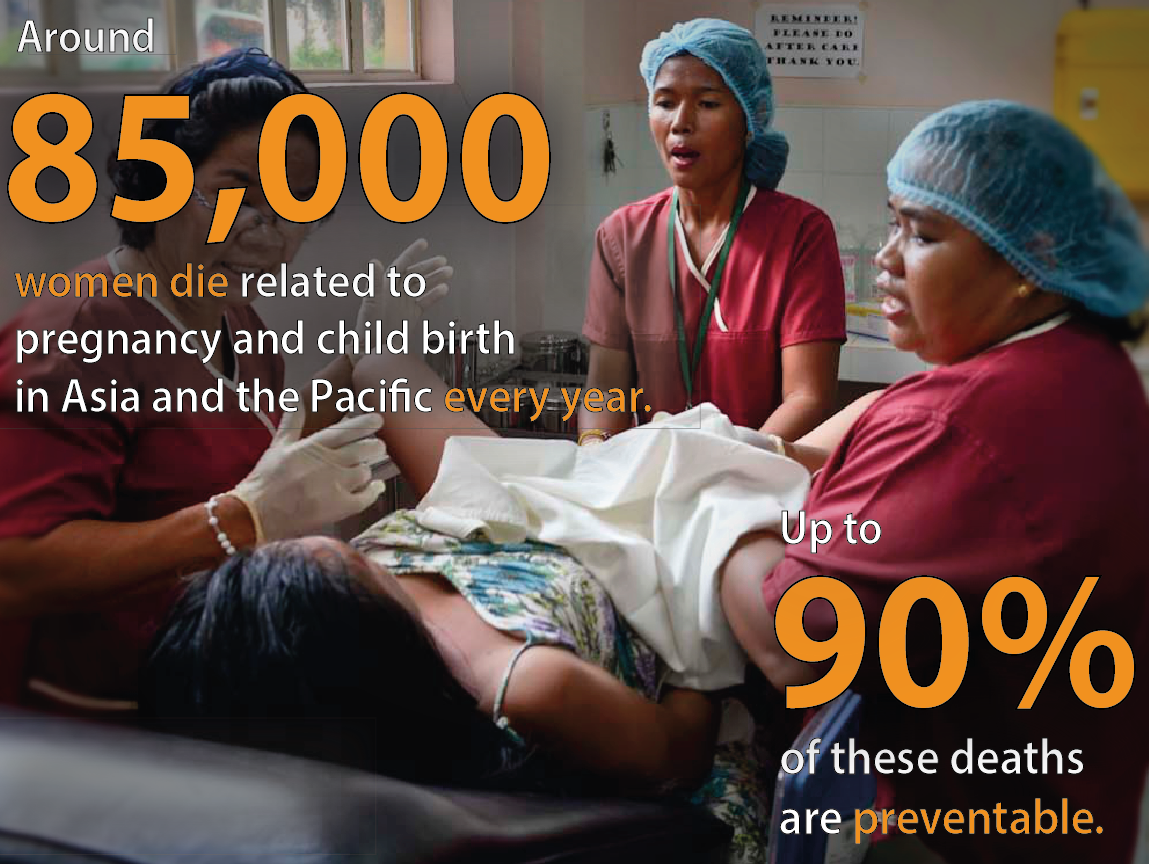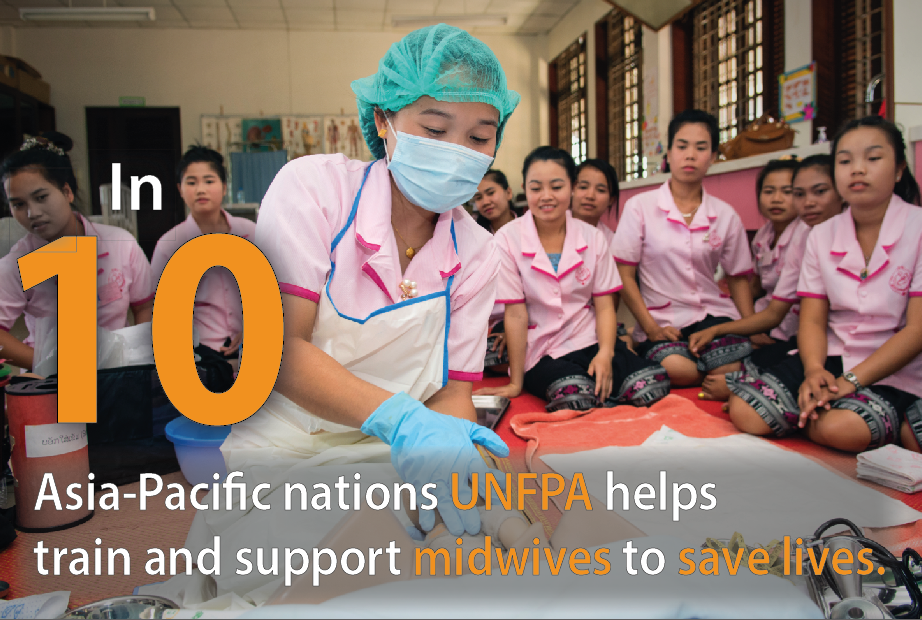At 19 years of age, Nay Hnin Lwin is on a crucial mission. She’s among 200 students at the Central Midwifery School in Yangon being trained on how to safeguard the lives of women who give birth in rural Myanmar.
Childbirth and pregnancy-related complications are the leading causes of death among women in the country, mainly due to delays in reaching emergency care.
According to the most recent census in 2014, 282 women die per 100,000 births in Myanmar, or about eight deaths every day. That’s double the regional average and far above the mortality ratio of 20 deaths per 100,000 births in neighbouring Thailand or six per 100,000 births in Singapore.
To help reduce its alarming numbers, Myanmar is training up hundreds of midwives, one of many social policy reforms launched by the country as it emerges from decades of military rule.
Nay Hnin Lwin symbolizes this effort, with a mindset that’s in sharp contrast to that of her parents, who live in a rural area where most people still do not recognize the importance of midwives and rely instead on traditional birth attendants.
"If there is an emergency situation, they cannot save lives. Mothers are losing their lives because of them. I'm proud to be a midwife to save them from these situations," she told Reuters Television.
At the end of the two-year course, Nay Hnin Lwin and other trainee midwives will be deployed to remote clinics with poor infrastructure and bare-bones medical facilities.
"The role of midwives is very important because two-thirds of our country is in rural areas. They are not only working on healthcare, but also documenting and compiling data for the country," said Dashi Hkwan Nu, head instructor at the Central Midwifery School.

A UNFPA-trzined midwife attends to a pregnant women in rural Myanmar.
Myanmar's healthcare -- particularly in far-flung areas -- remains plagued by ramshackle services, with hospitals lacking basic equipment.
The government has launched a series of social development programmes such as national health and education plans, yet some groups have expressed frustration with the pace of change.
The midwifery training program is being supported by the United Nations Population Fund (UNFPA), which says Myanmar must tackle its maternal mortality challenge in order to raise living standards and strengthen its foundation for the future.
"Maternal mortality needs to come down if Myanmar wants to graduate from a least developed into a middle-income country," said Hla Hla Aye, UNFPA Assistant Representative in Myanmar.
Access to sexual and reproductive health services including family planning is also crucial in bringing down the numbers.
With support from UNFPA, “With support from UNFPA, around 2000 deaths in Myanmar were avoided through modern family planning methods in 2016 alone, but the country remains one of a handful of nations in Asia and the Pacific where maternal mortality remains needlessly high.

Despite major progress across Asia-Pacific in recent years, around 45,000 women still die across region each year through complications related to pregnancy and childbirth. Up to 90 per cent of these deaths could be avoided. UNFPA supports midwifery training programmes in ten Asia-Pacific countries, and encourages governments to deploy midwives in areas that need them the most to help women access lifesaving services and strengthen the framework of universal health coverage.
“Reducing maternal mortality must be viewed through the lens of the 2030 Agenda for Sustainable Development,” explained Yoriko Yasukawa, UNFPA Regional Director for Asia and the Pacific.
“With family planning, fair and equal access to health services, education and information, Myanmar and other nations can help ensure that the sexual and reproductive health and rights of all citizens are fulfilled, and meet the health-related targets under the Global Goals for Sustainable Development. Well-trained midwives are a key component of this effort, to help ensure that not a single woman dies during pregnancy or childbirth. Ultimately, saving the lives of women and mothers will strengthen communities, societies, countries and our entire region.”



